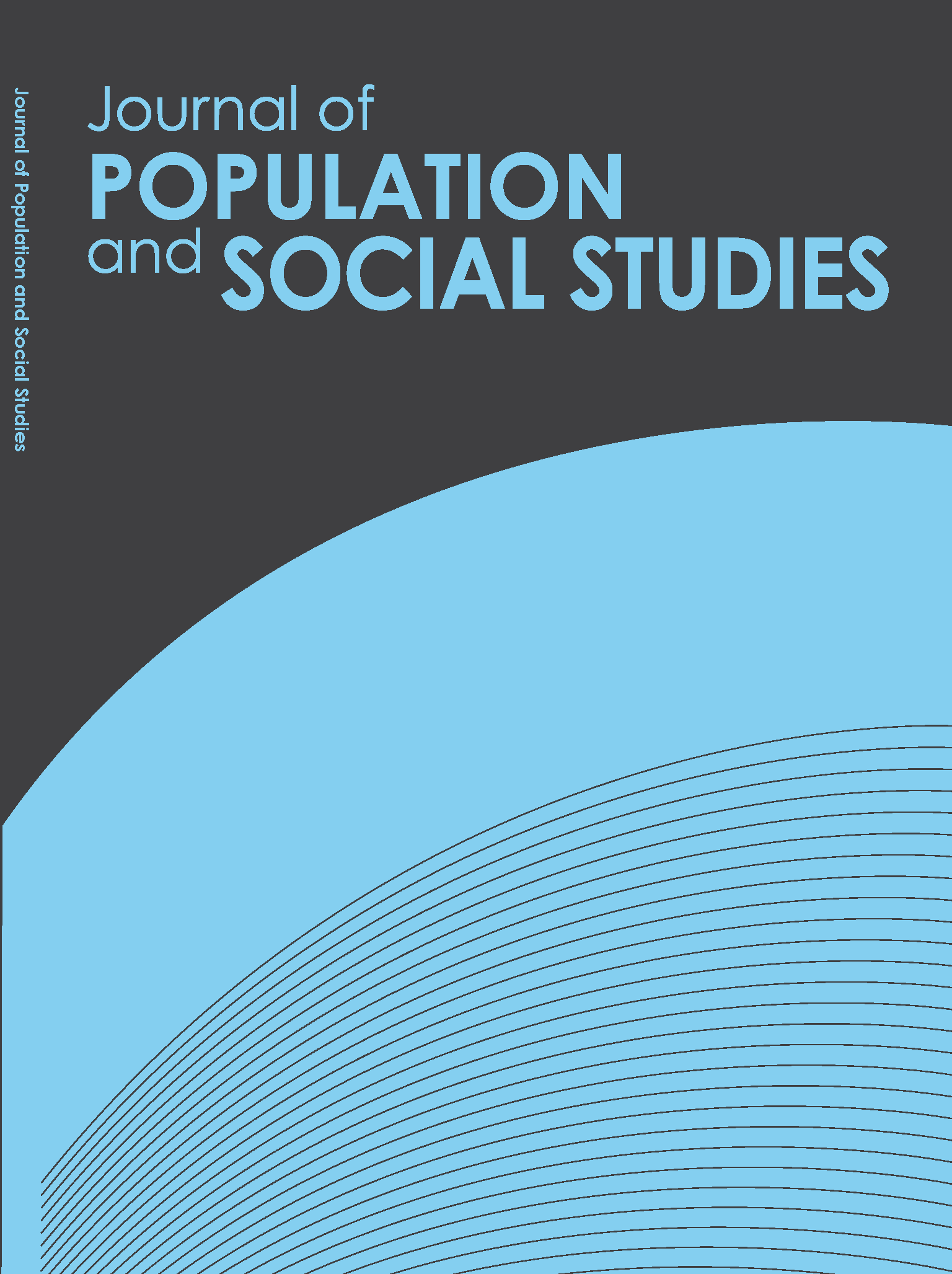Differentials in Happiness among the Young Old, the Middle Old and the Very Old in Thailand
Main Article Content
Abstract
This study investigates factors affecting happiness among the young old, the middle old and the very old in Thailand. The sample includes 4,036 people ages 60 and older who are Buddhists and have at least one living child in the demographic surveillance site in Kanchanaburi, Thailand. Face-to-face interviews were conducted from September to December 2011. Older people were classified into young old (60-64), middle old (65-74) and very old (75 and older). Multiple regression was used to analyze these three age categories separately. Results show three factors that significantly contribute to elder happiness in all age categories: perceived trust in family care, the number of people with whom it is pleasant to talk and perceived health. Economic factors were important for the young old and the middle old. Giving help to children/grandchildren and engaging in religious activities were important only among the very old. Policies should promote health, work opportunities for older adults and religious activities, as well as family, friend and community relationships. It is strongly recommended that such policies be implemented before people reach old age.
Article Details
References
Antonucci, T. C., Ajrouch, K. J. & Birditt, K. S. (2013). The convoy model: Explaining social relations from a multidisciplinary perspective. The Gerontologist, 82-92. doi: http://dx.doi.org/10.1093/geront/gnt118
Bowling, A. & Browne, P. D. (1991). Social networks, health, and emotional well-being among the oldest old in London. Journal of Gerontology, 46(1), S20-S32. doi: http://dx.doi.org/10.1093/geronj/46.1.s20
Cheng, S-T., Lee, C. K. L., Chan, A. C. M., Leung, E. M. F. & Lee, J-J. (2009). Social network types and subjective well-being in Chinese older adults. The Journals of Gerontology Series B: Psychological Sciences and Social Sciences, 64B(6), 713-722. doi: http://dx.doi.org/10.1093/geronb/gbp075
Choi, N. G. & Wolarski, J. S. (1996). The relationship between social support and health status of elderly people. Social Work Research, 20(1), 52-63.
Collins, A. L., Goldman, N. & Rodriguez, G. (2008). Is positive well-be¬ing protective of mobility limitations among older adults? The Journals of Gerontology Series B: Psychological Sciences and Social Sciences, 63(6), P321-P327. doi: http://dx.doi.org/10.1093/geronb/63.6.p321
Cohen, A. B. (2002). The importance of spirituality in well-being for Jews and Christians. Journal of Happiness Studies, 3(3), 287-310. doi: http://dx.doi.org/10.1023/A:1020656823365
Cohen, S. (2004). Social relationships and health. American Psychologist, 59(8), 676-684. doi: http://dx.doi.org/10.1037/0003-066x.59.8.676
Danner, D. D., Snowden, D. A. & Friesen, W. V. (2001). Positive emotion in early life and longevity: Finding from the Nun Study. Journal of Personality and Social Psychology, 80(5), 804-813. doi: http://dx.doi.org/10.1037//0022-3514.80.5.804
Diener, E., Suh, E. M., Lucas, R. E. & Smith, H. L. (1999). Subjective well-being: Three decades of progress. Psychological Bulletin, 125(2), 276-302. doi: http://dx.doi.org/10.1037//0033-2909.125.2.276


